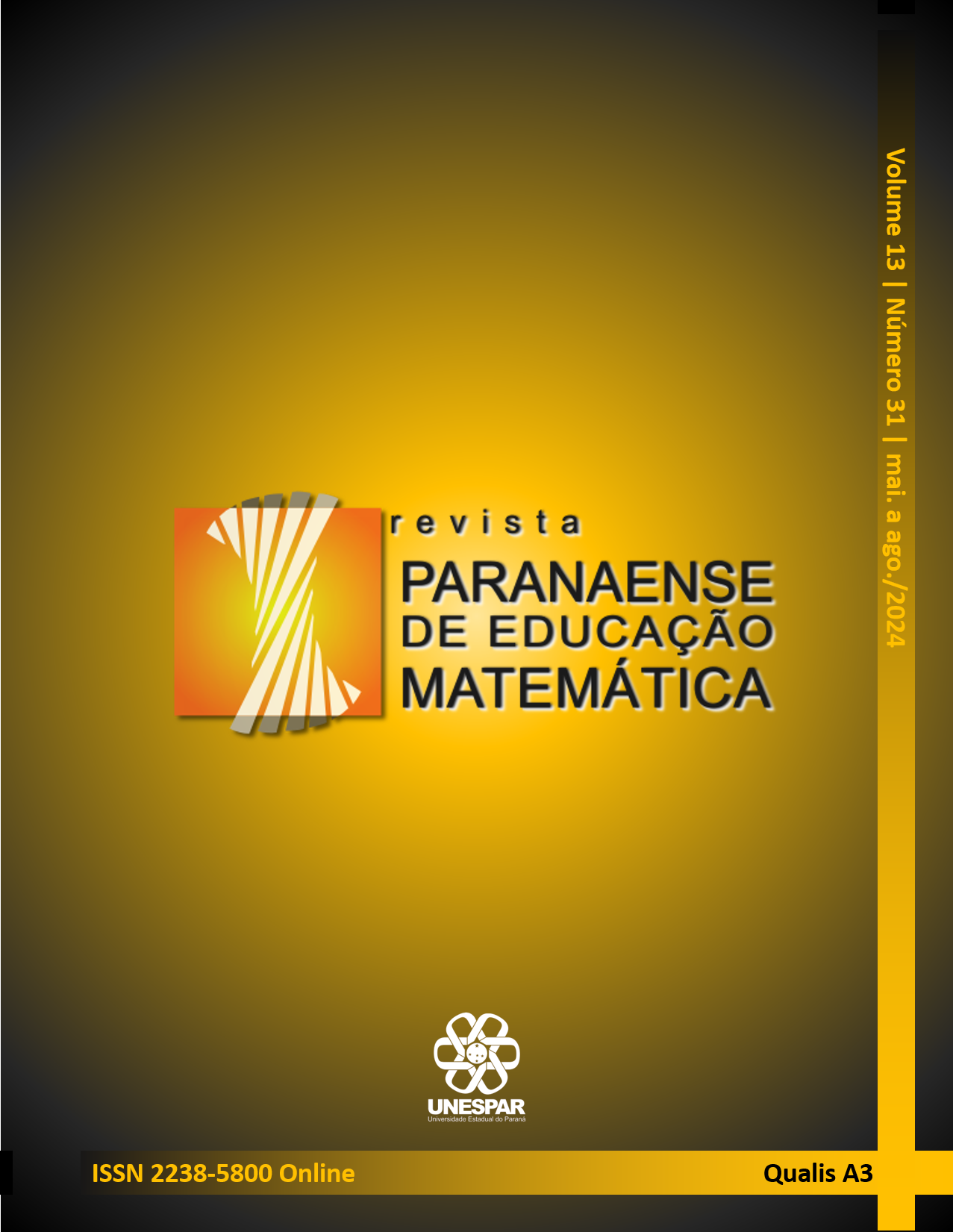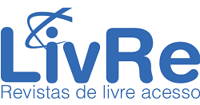Estilos de aprendizagem e o processo de clusterização
o que eles nos dizem para a formação de grupos cooperativos em matemática na EJA-EPT
DOI:
https://doi.org/10.33871/rpem.2024.13.31.8501Resumo
Este artigo tem por objetivo refletir sobre os procedimentos metodológicos envolvidos no processo de mineração de dados para composição de grupos de alunos da Educação de Jovens e Adultos, baseados em seus estilos de aprendizagem. Inicialmente, 25 alunos foram submetidos ao questionário Index of Learning Styles (ILS), que identifica os estilos ativo/reflexivo, sensorial/intuitivo, visual/verbal e sequencial/global. Os resultados orientaram a possibilidade de agrupamentos para futuros trabalhos cooperativos nas aulas de matemática. Após a coleta dos perfis de estilo de aprendizagem de cada estudante, aplicou-se o algoritmo de clusterização k-means para sugerir a formação dos grupos. A análise revelou especificidades nos clusters formados, destacando-se características distintas nos grupos baseados nos estilos ativo/reflexivo, sensorial/intuitivo, visual/verbal e sequencial/global. Concluiu-se que a técnica de mineração de dados, aliada à análise criteriosa dos resultados, pode ser uma ferramenta útil no processo de formação de grupos com base nos estilos de aprendizagem.
Downloads
Referências
ARAÚJO, R. A. G. S. et al. Estilos de Aprendizagem e características dos estudantes de Ciências contábeis a partir do modelo de Felder & Silverman (1988). In: USP INTERNATIONAL CONFERENCE IN ACCOUNTING. 2018.
AVELAR, C. F. P. Mineração de dados. Revista Vianna Sapiens. Juiz de Fora, v. 8, n. 2, p. 30-54, 2017.
ÁVILA, P. Aprendizagem e educação de adultos em Portugal e na EU: relevância sociológica, desafios conceptuais e resultados de investigação. Sociologia, Problemas e Práticas, n. 102, p. 9-39, 2023.
BAIR, J. H. Supporting cooperative work with computers: Addressing meeting mania. In: Digest of Papers. COMPCON Spring 89. Thirty-Fourth IEEE Computer Society International Conference: Intellectual Leverage. IEEE, 1989. p. 208-217.
BARKLEY, E. F.; MAJOR, C. H.; CROSS, K. P. Collaborative learning techniques: A handbook for college faculty. John Wiley & Sons, 2014.
BARROS, R. Revisitando Knowles e Freire: Andragogia versus pedagogia, ou o dialógico como essência da mediação sociopedagógica. Educação e Pesquisa, São Paulo, v. 44, p. e173244, 2018. Disponível em: <http://www.scielo.br/scielo.php?script=sci_arttext&pid=S1517-97022018000100465&lng=pt&nrm=iso>. Acesso em: 02 jan. 2023.
BERMEJO DÍAZ, J. M. et al. Educación física y universidad: Evaluación de una experiencia docente a través del aprendizaje cooperativo. Retos. Nuevas tendencias en Educación Física, Deporte y Recreación, vol. 39, p. 90-97, 2021.
BONA, A. S. D.; SCHÄFER, P. B.; FAGUNDES, L. C.; BASSO, M. V. de A. Cooperação na Complexidade: Possibilidades de Aprendizagem Matemática suportadas por Tecnologias Digitais. Revista Novas Tecnologias na Educação, Porto Alegre, v. 9, n. 2, 2011. DOI: 10.22456/1679-1916.25168. Disponível em: <https://seer.ufrgs.br/index.php/renote/article/view/25168>. Acesso em: 02 jan. 2023.
BRASIL. Conselho Nacional de Educação. Câmara de Educação Básica. Resolução Nº. 11/2000 de 3 de julho de 2000. Dispõe sobre as Diretrizes Curriculares Nacionais para Educação de Jovens e Adultos. Brasília: MEC, 2000.
CAMILO, C. A.; SILVA, J. C. Mineração de Dados: Conceitos, Tarefas, Métodos e Ferramentas. Instituto de Informática Universidade Federal de Goiás, v. 1, n. 1, p. 1-29, 2009
COHEN, E. G.; LOTAN, R. A. Planejando o trabalho em grupo: estratégias para salas de aula heterogêneas. Porto Alegre: Penso Editora, 2017.
COSSEY, R. Mathematical communication: issues of access and equity. Stanford University, 1997.
DINIZ, C. A. R.; NETO, F. L. Data Mining: uma Introdução. São Paulo: XIV Simpósio Nacional de Probabilidade e Estatística. IME-USP, 2000.
ESTEVES, D. C. F. O impacto das aulas de instrumento em grupos cooperativos no desenvolvimento do pensamento crítico. 2022. 115f. Dissertação (Mestrado em Ensino de Música) – Universidade Católica do Porto, Porto, 2022.
FELDER, R. M.; SILVERMAN, L. K. Learning and Teaching styles in engineering education. Engineering education, v. 78, n. 7, p. 674-681, 1988. Disponível em: <https://www.researchgate.net/publication/257431200_Learning_and_Teaching_Styles_in_Engineering_Education>. Acesso em: 18 fev. 2021.
FELDER, R. M.; SOLOMAN, B. A. Index of Learning Style, 1991. Disponível em: <https://www.webtools.ncsu.edu/learningstyles/>. Acesso em: 18 fev. 2021.
FILATRO, A. Estilos de aprendizagem. ENAP – Fundação Escola Nacional de Administração Pública. Brasília, DF, 2015. Disponível em: <http://repositorio.enap.gov.br/handle/1/2363>. Acesso em: 10 jun. 2023.
FONSECA, M. C. F. R. Educação Matemática de Jovens e Adultos: Especificidades, desafios e contribuições. Belo Horizonte: Autêntica, 2016.
FREITAS, M. A. O.; CUNHA, I. C. K.; BATISTA, H. S. S. Aprendizagem significativa e andragogia na formação continuada de profissionais de saúde. Aprendizagem Significativa em Revista (Meaningful Learning Review), v. 6, n. 2, p. 01-20, 2016.
GIL, A. C. Como elaborar projetos de pesquisa. 7. ed. São Paulo: Atlas, 2022.
HAMADA, A. K.; RASHAD, M. Z.; DARWESH, M. G. Behavior analysis in a learning environment to identify the suitable learning style. International Journal of Computer Science & Information Technology, v. 3, n. 2, p. 48-59, 2011. Disponível em: <https://www.researchgate.net/publication/265916274_Behavior_Analysis_in_a_learning_Environment_to_Identify_the_Suitable_Learning_Style/citations>. Acesso em: 02 jan. 2023.
JAIN, A. K. Data clustering: 50 years beyond k-means. Pattern recognition letters, v. 31, n. 8, p. 651-666, 2010.
KOLB, D. A. Experiential learning: experience as the source of learning and development. Englewood Cliffs, New Jersey: Prentice – Hall, 1984.
NIETTO, P. R. Algoritmos de agrupamento divisivos com predeterminação Automática do Número de Grupos, 2016, 155 f. Dissertação (Mestrado em Ciência da Computação) – Faculdade Campo Limpo Paulista, São Paulo, 2016.
PEREIRA, E. J.; JUNIOR, N. V. Os Estilos de Aprendizagem no Ensino Médio a partir do Novo ILS e a Sua Influência na Disciplina de Matemática. ALEXANDRIA Revista de Educação em Ciência e Tecnologia, v. 6, n. 3, p. 173-190, 2013.
RAMOS, I. M. M. Recomendação para formação de grupos para atividades colaborativas utilizando a caracterização dos aprendizes baseada em trilhas de aprendizagem, 2017. 113f. Dissertação (Mestrado em Informática) – Universidade Federal do Amazonas, Manaus, 2017.
RIOS, F. S. et al. APRENDIZAGEM AUTODIRIGIDA E DESIGN INSTRUCIONAL: CAMINHOS PARA A APRENDIZAGEM. Revista Amor Mundi, v. 4, n. 5, p. 3-8, 2023.
SCHMIDT, C. S.; DOMINGUES, M. J. S. Estilos de aprendizagem: um estudo comparativo. Revista da Avaliação da Educação Superior, Campinas: v. 21, n. 2, p. 361-385, 2016.
SLAVIN, R. E. Ability grouping and student achievement in elementary schools: a best-evidence synthesis. Review of Educational Research, v. 57, n. 3, p. 293-336, 1978.
SOUZA, J. F.; JUNGER, A. P.; SOUZA, J. F. F.; AMARAL, L. H. Ensino de cursos tecnológicos por meio de estilos de aprendizagem aplicados à estatística. Research, Society and Development, Itajubá, v. 7, n. 3, 2018.
TREISMAN, U. Studying Students Studying Calculus: A Look at the Lives of Minority Mathematics Students in College, The College Mathematics Journal, v. 23, n. 5, p. 362-372, 1992.
VARGAS, P. G.; GOMES, M. F. C. Aprendizagem e desenvolvimento de jovens e adultos: novas práticas sociais, novos sentidos. Educação e Pesquisa, v. 39, n. 02, p. 449-463, 2013.
VIANA, H. B.; MARIO, A. J. O. Estilos de aprendizagem e uso de tecnologia na educação a distância. Internet Latent Corpus Journal, v. 9, n. 1, p. 69-79, 2019.
WEBB, N. Predicting learning from student interaction: defining the interaction variable. Educational Psychologist, v. 18, n. 1, p. 33-41, 1983.
ZAINA, L. A. M.; BRESSAN, G.; CARDIERI, M. A. A. C.; RODRIGUES JUNIOR, J. F. e-LORS: Uma Abordagem para Recomendação de Objetos de Aprendizagem. Revista Brasileira de Informática na Educação, v. 20, n. 1, p. 4-16, 2012.
Downloads
Publicado
Como Citar
Edição
Seção
Licença
Copyright (c) 2024 Revista Paranaense de Educação Matemática

Este trabalho está licenciado sob uma licença Creative Commons Attribution-NonCommercial-NoDerivatives 4.0 International License.










